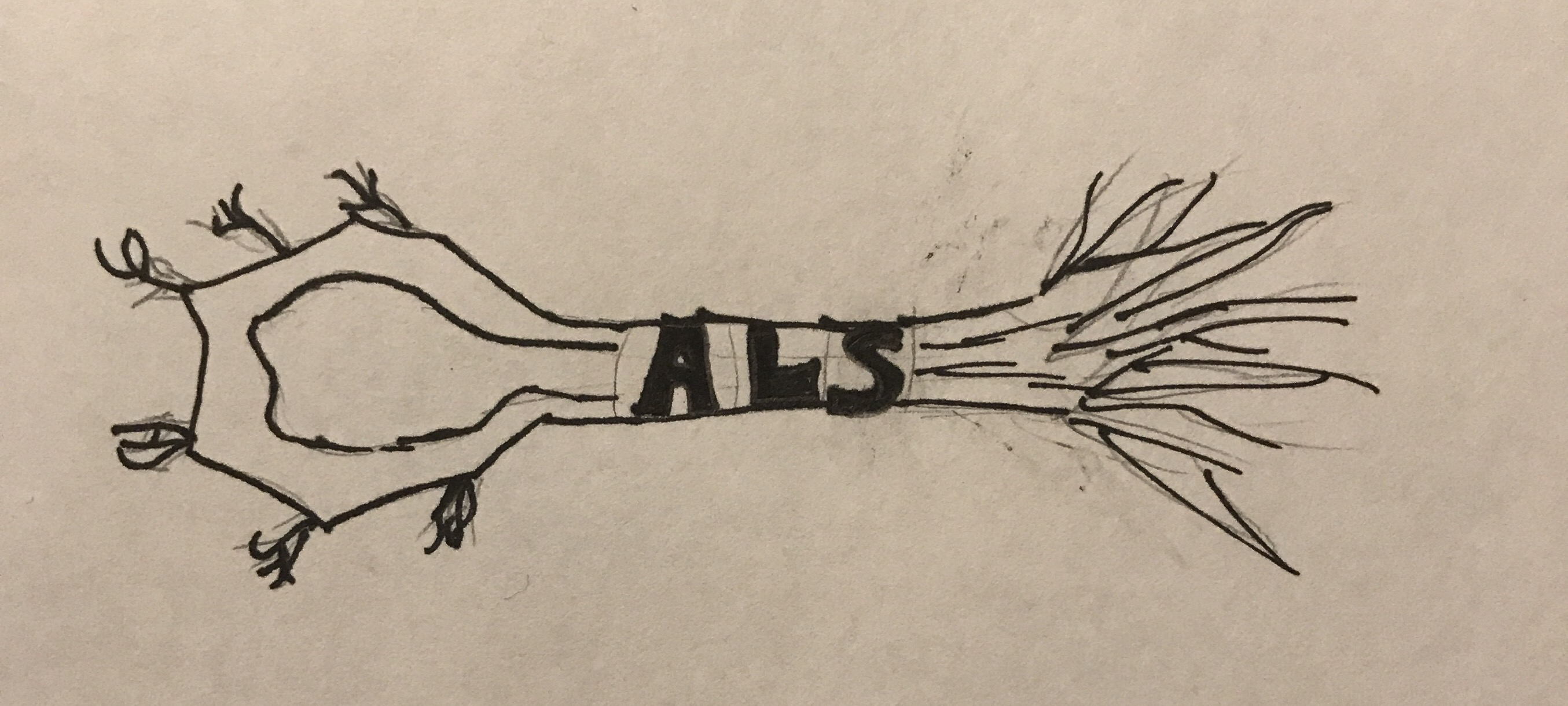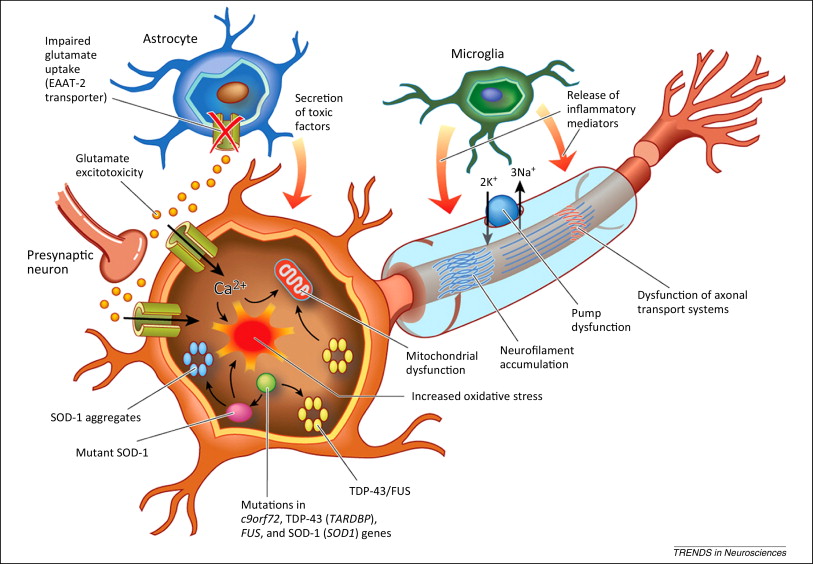
Amyotrophic Lateral Sclerosis (ALS)
According to the Therapy Development Institute, ALS is defined as “a motor neuron disorder attacks certain cells in the brain and spinal cord needed to keep our muscles moving.” ALS doesn’t affect any of the five senses or cognitive functioning, making the disorder particularly devastating for the individual diagnosed and family. The average life-span of an individual after being diagnosed is 2-5 years. The disease affects many, with an overall lifetime risk of 1 in 400 to develop the disease.
How does ALS work?

While not all the mechanisms of action of ALS are known, some of the main effectors in ALS are inflammation and oxidative stress that damages the mitochondrial functions. Other information on disease epidemiology is depicted in the image above.
SOD1 influence on ALS
Certain gene mutations have been associated with ALS, including on the SOD1 gene. SOD1 translates an enzyme with the function of converting superoxide (a harmful reactive oxygen species) into the less harmful H2O2. Mutated SOD1 genes lead to buildup of SOD1 aggregates which are not able to function, leading to an increase in oxidative stress.
Video Link: Some helpful information in understanding ALS!
https://www.youtube.com/watch?v=xrIjFVMliOQ
While it is important to look deeper at the mechanism of action for ALS and why it is particularly devastating, hearing individual testimonies on the disease offers a realistic view of the disorder. The following quotes come from individuals who are diagnosed with ALS or who have family members who have/have had the disorder.
I guess I never really knew the meaning of strength. Now I do.
I pray that all those who are suffering with this condition will one day be free from the pain of this most serious of experiences.
In three years he went from being perfectly healthy to not even being able to cluck a tongue and it all happened in the blink of an eye.
Unfortunately, she never came off that respirator and we spent the next five years watching her body deteriorate while she lived on life support. Her mind was sound and her will to live was strong, but we knew she was afraid of being alone and what was to come.
Sources
https://als-ny.org/blog/patients-families-tell-us-als-stories/
http://dmm.biologists.org/content/10/5/537
https://www.cell.com/trends/neurosciences/fulltext/S0166-2236(14)00085-X